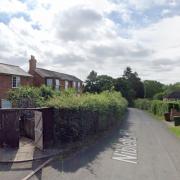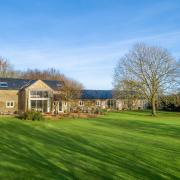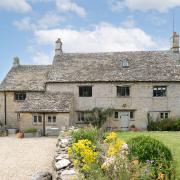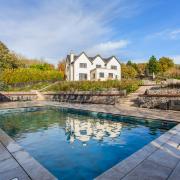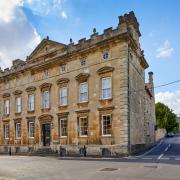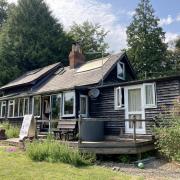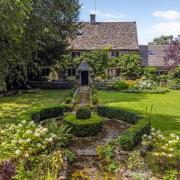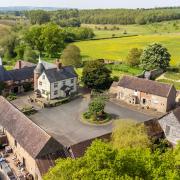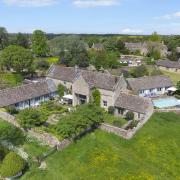‘I went over 20 years with no social life, just a pint of shandy a week’

For many of us, the sea means rest and play, but for many in Cornwall it also means work. Susan Griffin meets some of the people whose livelihood depends on the water. But while the tourists flock to Cornwall to enjoy the surf, paddle on the shoreline, and explore sleepy creeks, there are thousands of people busy behind the scenes earning an income from the water, as they have done for centuries. In celebration of the mariners and water enthusiasts who populate the region, we speak to a few of them about the reality of life on the open waves.
Phil Trebilcock has been a fisherman for over 40 years and specialises in lobster and crab. He’s based in Newquay.
‘I left school at 16 and was told to get a trade and the old saying was the harbour would always be there. I’m 66 now. In the early days, I went over 20 years with no social life, just a pint of shandy a week, and worked and slept. As you get older, you don’t want to be chucked around as much, so I try and do shorter days and weeks, although I don’t mind the heat. I live in a vest anyway. The worst conditions were in ‘86, ’87. Went away from here in flat calm but it was in the middle of a low pressure. Should’ve known better. Got eight miles out, and as the lower pressure passed through, the wind was gusting, the worst I’ve been out in. But you take the bad with the good. I sell the lobsters through an agent I’ve dealt with for 12 years, Flying Fish Seafoods, who supply most of the Michelin starred chefs, although I prefer ordinary white meat crab sandwich to lobster. Add a bit of pepper and a couple of spots of vinegar on soft white bread, can’t beat it. I’ve done lots of TV over the years. I’ve been to Downing Street and Buckingham Palace for the charity work I do here and had a yarn with Prince Philip when he visited. He was good as gold to me. I’m slowing up a bit now but when it’s nice weather, I still enjoy it. When you get those early spring calm mornings, and you’ve had pots under the cliffs for four or five days with salt bait in them, you don’t want to be anywhere else.’
Hetty Wildblood provides guided tours as part of Koru Kayaking, which she and husband Tom opened eight years ago,

‘We were living in Yorkshire and got the opportunity to go travelling to Australia and New Zealand where we got the kayaking bug. When we got back to the UK, we moved to St Agnes and went on our own kayaking trips. They were so stunning, we wanted to share them, so opened Koru Kayaking in 2012. We’re run tours seven days a week for most of the year, with hot chocolate and biscuits added when it’s chilly, and there are incredible sunsets in November. Each trip is about two hours, either on the north coast, which starts at Trevaunance Cove and takes in caves and the mining landscape, or the Helford River, which begins at Budock Vean Hotel and heads down Frenchman’s Creek, known for its Daphne du Maurier links. Kylie Minogue even filmed a pop video there. The job does have its challenges. Saying no to an enquiry when you run your own business is tough to do, but kayaking is our passion and we love sharing that with people of all ages, locals as well as tourists. We limit groups to six people on three kayaks. The small groups mean you can get to places you wouldn’t be able to otherwise. We’ve been fortunate to travel all over the world, but nothing compares to kayaking along the St Agnes coastline and Helford, two such diverse waterways with massive amounts of history, wildlife, and so atmospheric. We see seals, basking sharks, guillemots, jellyfish, and dolphins if we’re lucky. After lockdown, we’ve found people are keen to get out and have an adventure, enjoy nature and the interaction with each other, or just enjoy some time by themselves.
korukayaking.co.uk)
Beccy Constant has been running Cornwall Watersports in Pentewan with her brother Steven Baker for four years ‘Steven and I have very fond memories of growing up in Cornwall, and although we lived away for a while, we both returned and bought the business. I spend the winter months sourcing the next year’s stock, mending boat covers and hiring equipment, and then the clean-up begins in March, repainting the shop floors, washing all the equipment, from buoyancy aids to a six metre RIB, sanding the self-drive boats and inflating the paddleboards, the list goes on...Out of season, I work when the weather lets me and from Easter, we’re open seven days a week (although COVID-19 meant we remained closed until July 4 this year). Typically, we’re flat out in July and August, setting up equipment, doing safety checks, fuel runs, boat launches and safety discussions, and constantly vigilant of customers out on the water. We have a great team of instructors and young people and as a business owner I feel it’s incredibly important we all connect at the end of these crazy, busy days, so we’ll sit on the beach with a beer or a cup of tea and have a catch up. The only real stress is when a boat is out of action for too long, and there are plenty of highlights. Sometimes Steven radios from the ferry to say there are dolphins in the bay. I’ll hop on a little RIB and go and watch them from a distance so as not to bother the pods that visit us. It’s also amazing to be on the water at sunrise. The sea can be the most peaceful, relaxing space to just take a breath.’
cornwallwatersports.co.uk

Joe Pender is skipper of passenger boat the Sapphire in the Isles of Scilly and spokesman for St Mary’s Boatmen’s Association.
‘I’m a born and bred Scillonian, and had thought about joining the Royal Navy, but my dad was getting on in years, so I started helping and then it got to the stage where he couldn’t carry on, so I took over. There are 10 of us, and everyone’s known each other most of their lives. We’re self-employed but work together to offer a wide range of boat trips. On an average day, we’ll meet at 8am and one of the chaps will write up the day’s trips on the quay’s blackboards and around the town. Some of us will go around the guest houses and hotels and tell the visitors what trips we’re doing. We’ll start loading the boats about 9.30 and then it’s on and off until about 5.15. We do evening trips as well, to St Agnes or St Martins for fish and chips or to the pub. I like all the islands individually, although I spend a lot of time on Tresco. All the skippers do their own commentary, especially on the fishing and pelagic trips when we see puffins and seals. I’ve taken Ben Fogle out shark fishing, and done clips for The One Show, you don’t forget those sorts of days. During the winter months, we’ll do different work around the islands, and get the boats ready. In 2019, I went to the Antarctic to work on a ship for a couple of months as a tour guide.
The job can be busy and stressful, and you do get the odd person who’s sea sick, but you wouldn’t swap it for anything else, and it’s great seeing the same faces every year as there’s a loyal fan base who come to the islands.’
scillyboating.co.uk

Katherine Woods has been a RNLI beach lifeguard for three years and is currently based at Beachview on the Hayle Stretch .
‘I moved down from Norfolk just over four years ago and used to work at the Porthmeor beach café where I’d see the surf school every day and a friend there suggested I apply. I did my qualification over the winter, and then applied to the RNLI and got it. We need to be set up by 10am and then work through to 6pm on rotation at different stations, which might be by the truck, in the tower or out on the water. You might see a lifeguard sat up on the tower on a sunny day and think they’re just getting a tan, but someone has to be on constant observation of what’s going on in the water. Our work is essentially preventative, so talking to people, and putting signs and flags out. You don’t ever want to get to the stage where you’re having to save someone who’s close to drowning. We’ll advise people not to use inflatables if there’s an offshore wind, and we deal with a lot of stings from weaver fish buried under the sand, as well as grazes and seagull attacks. Last year, we were called to do first aid on a guy who’d collapsed and was later airlifted to hospital. It turned out he’d had a major bleed on the brain. We won the Landal Gwel an Mor Emergency Services Award for that incident, which makes you feel proud. I like the fact I’m helping people and I get to work outside, whatever the weather. It keeps you fit, and every day is different. The only low is when the job comes to an end in late October. I live in St Ives, so usually work in hospitality or retail during the winter months and go away for a month if I can. But before you know it, it’s time to do the induction again in March. Even though it’s seasonal, I see it as a career and know lifeguards who’ve been doing it for 30 years. The coastline is so beautiful, you can’t believe that’s your office.’
rnli.org







